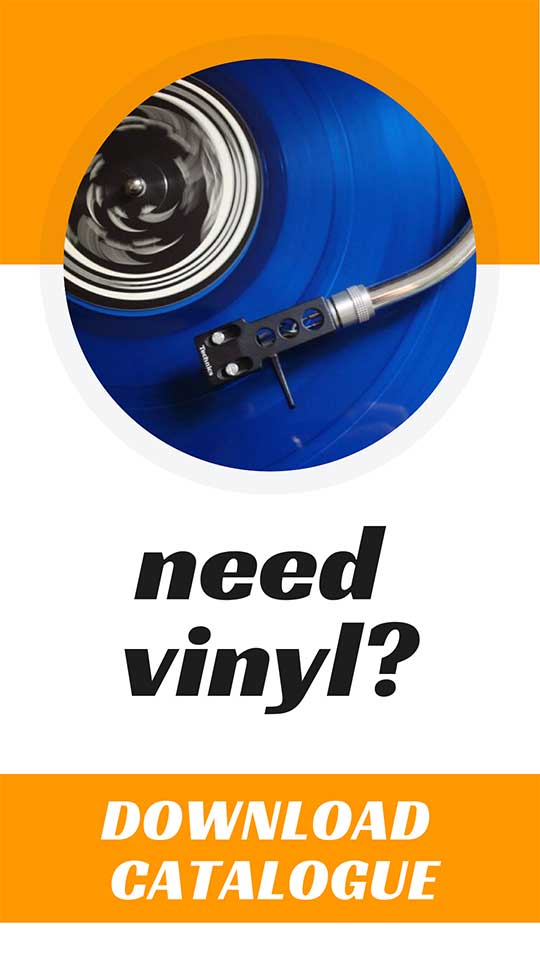
How To Sell Songs As A Songwriter
Struggling to sell your songs as a songwriter? Many talented songwriters face difficulties in finding the right opportunities. Understanding music industry nuances can be key to success.
This article will guide you through effective strategies to pitch and sell your songs. Stay tuned!
Quick Facts
- Protect your songs by copyrighting them. This ensures you legally own your music and can collect royalties.
- Record high-quality demos to showcase your songs’ potential. Use skilled producers if needed for a polished sound.
- Target smaller artists and indie labels first. They are more open to new talent, increasing your chances of success.
- Network by joining songwriter groups and forums. Engaging with PROs like ASCAP or BMI helps protect rights and meet industry professionals.
- Attend music events and use pitch sheets to connect with the right contacts in the music industry. Tailor pitches to match their style for better results.
Understanding the Basics of Selling Songs
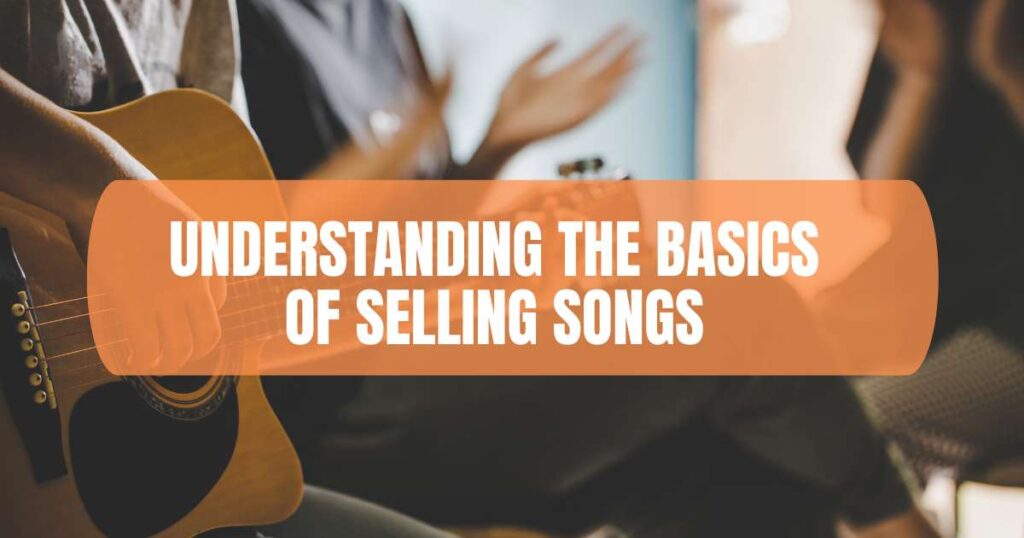
What does it mean to sell a song?
Selling a song does not mean giving away ownership forever. Songwriters often keep the copyright. They license or sign contracts instead of outright sales. Licensing deals give limited rights for songs to be used in different media like films and commercials.
Another option is signing with a music publisher who manages your catalogue and collects royalties on your behalf. Always consult a music business attorney before you sign any agreements to ensure you understand the terms fully.
Differentiating between publishing deals, licensing deals, and works for hire
Publishing deals mean long-term agreements where the songwriter keeps the copyright. Artists get help with royalty management and song promotions. Two common types are Publishing Administration Agreements and Co-Publishing Agreements.
In a Publishing Administration Agreement, the artist pays 10% to 25% of the Publisher’s Share but retains ownership. A Co-Publishing Agreement usually has a 75/25 split favouring the writer, who also gets an advance.
Licensing deals let multiple parties use your music non-exclusively, often for sync placements in films or adverts. Works for hire differ because you receive a one-time fee for creating a song without owning future royalties.
The client owns all rights to the work created under this agreement, which is ideal if you want immediate earnings instead of long-term royalties.
Browse our CD duplication products
Identifying Your Target Audience

Artists
Artists seek songs from many sources. They get melodies from record labels, managers, and producers. Friends and fans also share demos. New artists often look for fresh content to kickstart their careers.
Shows like “The Voice” or “The X Factor” introduce new talent who are eager to find the perfect song.
Focus on popular genres such as Pop, Country, and Rock when pitching your music. Study hit songs from stars like Katy Perry, Maroon 5, and Sara Bareilles to understand what works best.
Tailor your tracks to match an artist’s strengths and unique style. Use social media platforms including YouTube and Facebook to connect with emerging artists looking for songs that suit their brand.
Music publishers
Music publishers play a crucial role in getting your songs out there. They manage the rights to the music and typically do not accept unsolicited material. Songwriters need to pitch through professionals or use platforms like SubmitHub to get noticed.
Using digital distributors such as CD Baby or DistroKid can also help gain attention from music publishers. These companies place your songs on streaming services, increasing exposure.
Consider creating a lyric video on YouTube for even more visibility.
Music libraries and licensing agencies
Music libraries and licensing agencies help songwriters earn money. They grant permission to use songs in media like movies, TV shows, or commercials. Songwriters can gain sync fees and performance royalties through these deals.
Submitting music to reputable libraries ensures higher chances of getting noticed. Working closely with publishers also opens doors for more opportunities. Registering with a Performance Rights Organisation (PRO) like ASCAP, BMI, or SESAC helps collect performance royalties efficiently.
Music supervisors
Music supervisors play a crucial role in getting your song placed in films, TV shows, and commercials. They secure permissions for these projects. To connect with them, attend industry events where you can network directly.
These professionals are always on the lookout for songs that fit their current projects.
Partnering with third-party agencies also helps to pitch your song effectively to music supervisors. Such agencies bridge the gap between you and these key decision-makers. Engaging with music supervisors enhances your chances of getting songs recorded or licensed by established artists or brands.
Next up: Preparing to Pitch Your Songs
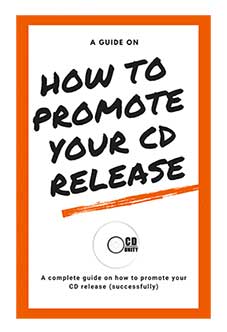
Download FREE pdf
Be prepared for your CD release!
With our guide you’ll be on the sure path to
release your CD successfully.
Preparing to Pitch Your Songs
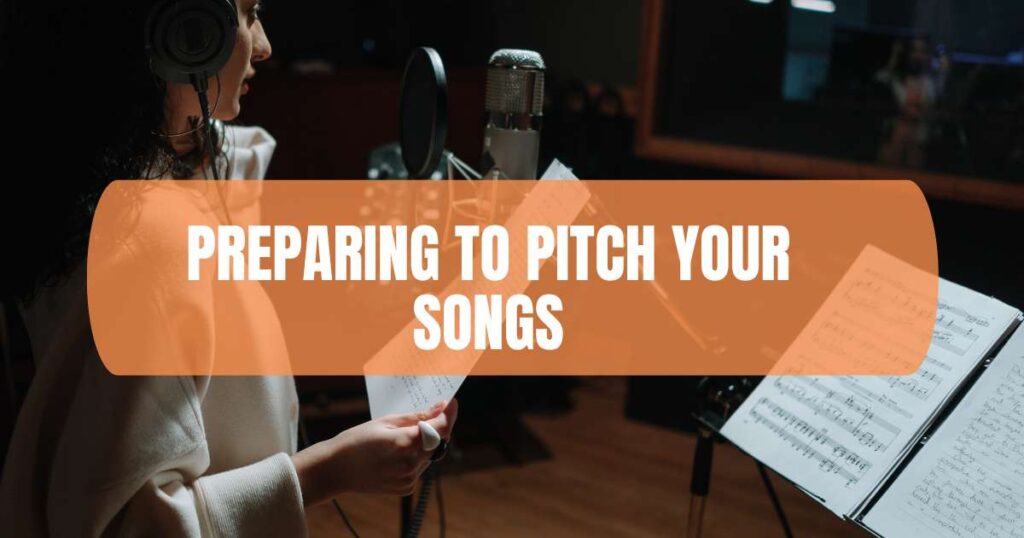
Copyright your songs
Copyright your songs to protect your work. In the U.S., visit www.copyright.gov to make it official. It’s cost-effective to copyright multiple songs as a group. Each song gains protection under the law.
In the UK, copyright starts automatically when you document or record your music. For extra security, mail yourself a sealed copy or use recorded delivery to show proof of creation.
Joining PRS or MCPS also helps protect your rights and collect royalties on behalf of songwriters like you.
Record a compelling demo
Record a compelling demo with high-quality performance. Use accurate rhythm guitar and contemporary drum sounds to showcase your song’s potential. A clean, punchy mix makes a difference in how your music is received.
Platforms like Soundbetter.com and Airgigs.com help find skilled producers or singers for this task. For country music, Pearl Snap Studios offers excellent demo services. Recording studios provide the right environment for professional sound quality.
Use these tools to create demos that stand out. These can be essential in landing a publishing deal or licensing agreement leading to the next step: using a pitch sheet or participating in music events.
Use a pitch sheet or participate in music events
Now that you’ve created an amazing demo, it’s crucial to get it in front of the right people. One effective method is using a pitch sheet such as those available at TAXI.com.
These lists provide contact information for industry professionals seeking new music.
Attending songwriter conferences boosts your exposure too. Events like the Durango Songwriters Expo, TAXI Road Rally, and ASCAP Experience offer networking opportunities with music publishers and artists.
Composers often find these events valuable to start selling their songs directly to interested parties.
Effective Strategies for Pitching Songs
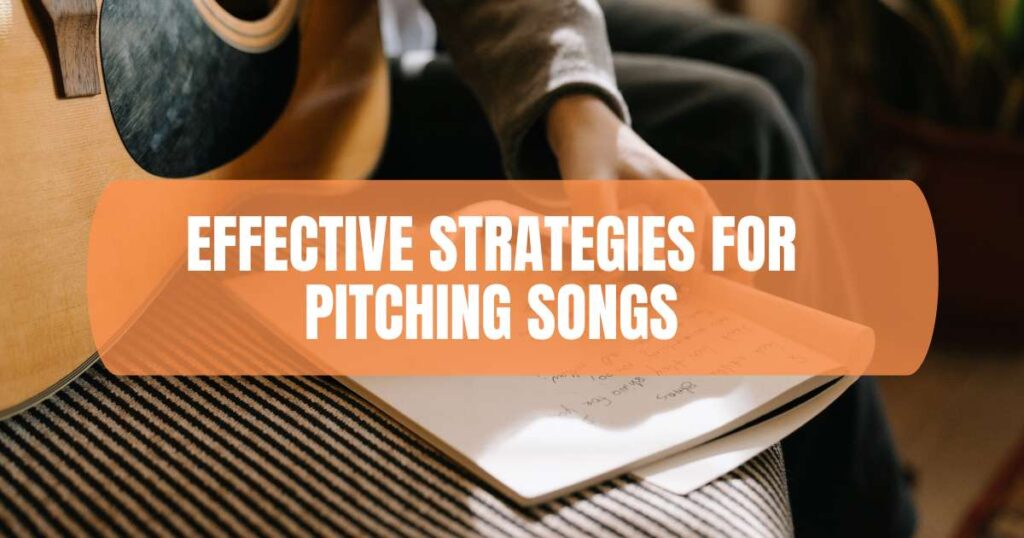
Start with smaller artists and indie labels
Target smaller artists and indie labels first. These musicians are more accessible and open to new talent. Networking at local events like open mics or writer’s nights can help in making connections.
Emerging bands often seek fresh material, giving songwriters a great opportunity.
Pitching songs to up-and-coming artists increases chances of success. Larger names have established teams that filter out unsolicited work. Collaborate with local musicians, enhancing your track record and growing together in the music industry.
Now, let’s discuss researching and targeting the right contacts effectively.
Research and target the right contacts
Researching contacts is crucial. Identify industry professionals who work with your genre. Look up artists, music publishers, and supervisors who fit your style.
Use social media platforms like LinkedIn to find their contact details. Make sure to keep initial communications brief and professional. Label all submissions clearly with your name, contact info, and song titles.
Getting permission before sending demos is important. Attend music events to network in person whenever possible. This will increase the chances of placing your songs successfully.
Keep these tips in mind as you tailor pitches for each artist or brand’s style.
Tailor your pitch to suit the artist or brand’s style
Crafting a pitch to match an artist’s style can make or break the deal. Ensure your songs align with their genre strengths. For instance, if pitching to a pop star, keep melodies catchy and lyrics relatable for young demographics.
Avoid using outdated themes; instead, infuse current language and trends.
Add modern twists to retro-inspired tunes. Think of “Classic” by MKTO or “Grenade” by Bruno Mars as excellent examples. Use these songs’ success as inspiration but make them fresh.
Doing so makes your material compelling and enhances its chances of being picked up by the right artists or brands.
Utilising Platforms and Professional Organisations

Join songwriter groups and forums
Selling songs as a songwriter involves understanding your audience and pitching effectively. Copyright your work, create polished demos, and target the right contacts. Engage with industry groups like ASCAP or BMI to protect your rights.
Use music events and online platforms to get noticed by artists and publishers. With persistence and smart strategies, you can find success in selling your songs.
All in All
Commencing a path towards becoming a tour manager blends the precision of organisational skills with the spontaneity of life during travels. There’s an opportunity to learn how to manage schedules, handle finances, and guarantee that every facet of the tour operates efficiently.
The position requires being adaptable, possessing excellent problem-solving skills, and an eye for meticulous planning. For individuals who have a keen interest in music and thrive in dynamic situations, establishing a career as a tour manager provides both challenges and rewarding chances to contribute significantly backstage.
Expertise in this area opens opportunities to collaborate with leading artists and play a pivotal role in their accomplishment narratives.
Cheers, Josh
The Big Lists Of Music Promo Contacts
Includes PR companies, UK promoters & UK booking agents. Everything you need to put your band on the map.
Access ListsHello, I’m Josh, and I’ve been honing my graphic design skills for almost 15 years now, catering to the needs of bands and businesses alike. What really fascinates me is the business aspect of the music industry. In addition to my design work, I also happen to play the Hammond organ, and I strive to share my knowledge through helpful articles that I write exclusively for you all!

